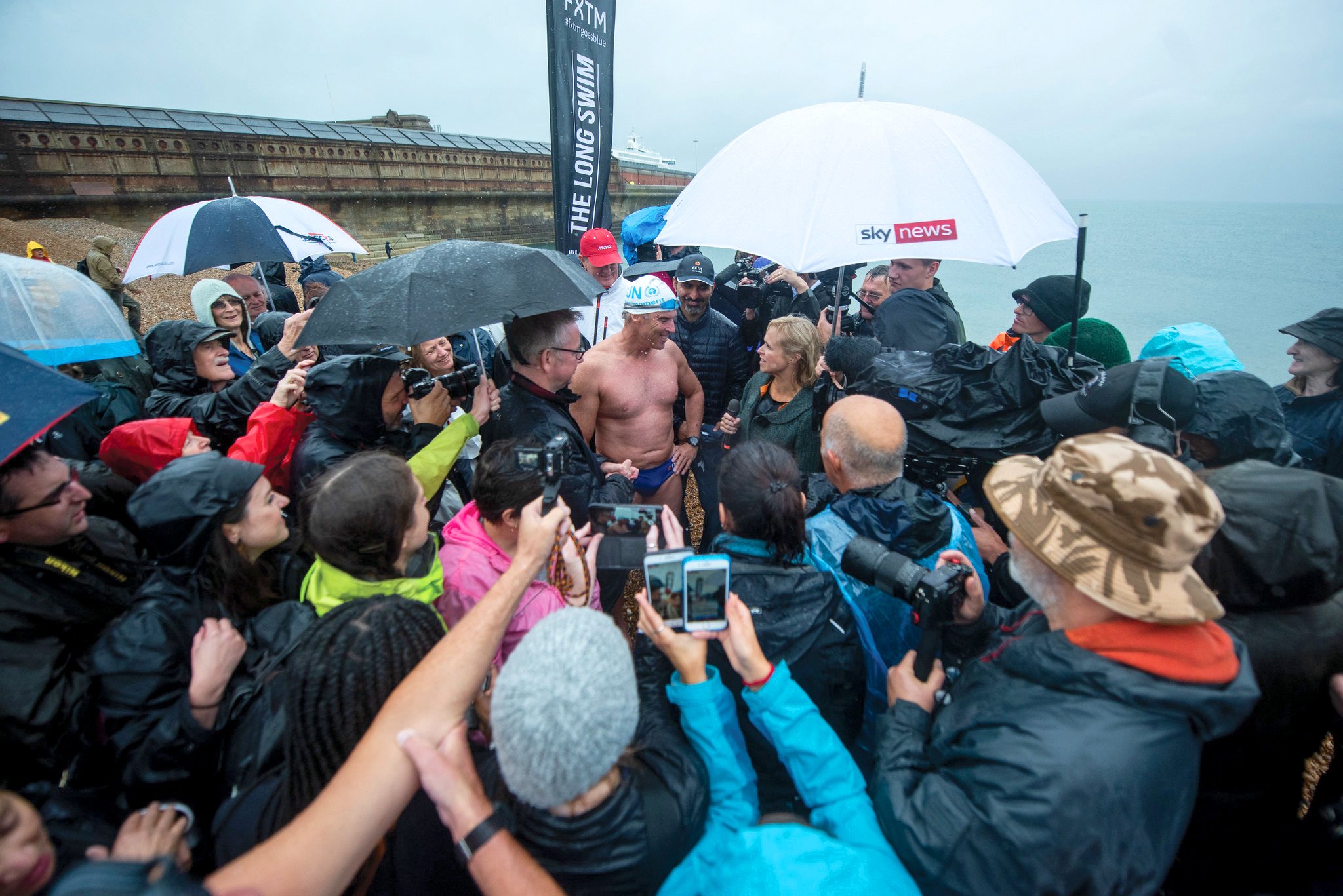The One Reason We Are Missing Environmental Targets
When I decided to swim the length of the English Channel, I didn't dive in at Land’s End and hope for the best.
I assembled the very best team. We drafted a training programme. We prepared exceptionally hard. I tried to eat the correct foods. And I made sure my mind-set was right.
I did all this every day, because consistency is the key to progress.
Setting the target
Then three months prior to the swim I had a meeting with ocean scientist Professor Callum Roberts. I asked him to advise us on the right target for our campaign. At the time the UN goal for ocean protection was 10% of our oceans by 2020.
Callum made the science very clear: at least 30% of our oceans need proper protection to save them from crossing a tipping point beyond which they cannot recover.
Our 30x30 Campaign was born.
Stepping up
From the start of my swim at Land’s End to the moment I touched the wall at Dover Harbour 49 days later, the British public were firmly behind us. There was a strong consensus that our waters need proper protection.
Secretary of State for the Environment Michael Gove was there to meet me at the end of the swim. He asked what we needed. We told him: proper protection for at least 30% of British waters.
We were excited when, one month later, the UK agreed to our suggestion and became the first major economy to call for 30% of the world's oceans to be protected by 2030. It made the announcement at the United Nations General Assembly.
One year later, the UK formed the Global Ocean Alliance, inviting other nations to support this 30% target. To date over 20 countries have signed on, the latest being Canada, which has an extensive coastline.
Finally, the UK commissioned the Benyon Review, which investigated ways of increasing marine protection in waters around the UK. The report, released this summer, is comprehensive. At last, the UK has clear targets, and a fine set of recommendations.
All they need to do now is to dive in, and commit.
Actions speak loudest
This is where I think governments can learn a lot from athletes.
When it comes to ocean protection, I often see governments setting targets but not following up with the funding, or the hard graft, needed to reach them.
That is like me saying I'm going to swim the length of the English Channel, without even getting into the water. Or a child dreaming of competing in the Olympic Games, but never taking up a sport.
If the UK wants to pioneer ocean protection, it must set the example. It has to act like an athlete, because we will only protect our oceans and avert the worst impacts of climate change if we are consistent in our efforts.
So where should action start for the UK?
It starts with enacting the recommendations of the Benyon Review immediately, by establishing Highly Protected Marine Areas (HPMAs) in home waters. It continues with an increase in full and proper protection in their overseas territories: Ascension Island, St Helena, Tristan da Cunha and South Georgia & the South Sandwich Islands.
Time critical
I have never been as exhausted as I was in the final days of my Channel swim. I had to swim 10km a day, rain or shine, but there were days when the storms were simply too wild to risk it. I didn’t welcome the rest, because I knew that the following day I would have to swim 20km to make up the distance. I had to keep with the programme if I was ever going to reach Dover.
The world is reeling from the effects of COVID-19, and we are in the midst of Brexit. We don't know what other storms are on the horizon. But we can't let these crises distract us. The UK has to keep its eye on the 30% target, and work consistently every day to get there.
Our oceans depend on it.
Lewis Pugh is an endurance swimmer and the UN Patron of the Oceans.


